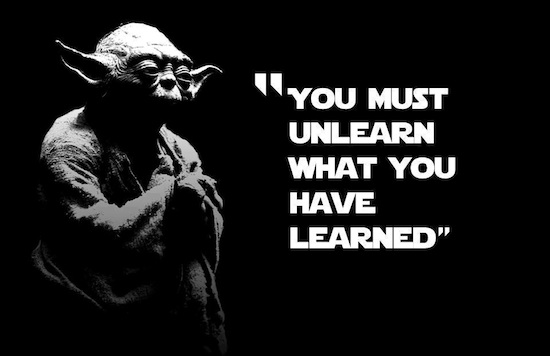
by Lance Cashion | Jan 21, 2014 | Culture, Education, God, Jesus Christ, Lance's Philosophy, Leadership, News, Personal Growth, Philosophy, Relationships, Trending Topics, Wisdom
Last Sunday morning, I was preparing to speak before a group of couple hundred people at our church. The main focus of my talk was about effectively communicating truth gracefully in a sometimes hostile environment. In the distraction caused by nervousness and excitement, something was missing. Had I forgotten something?
What unifies grace and truth?
I felt my outline was lack-luster and I decided to take a break. I happened to reach for a book that a mentor of mine had given me last year entitled “Incarnate Leadership” by Bill Robinson. I had previously read about half of the book but, it remained unfinished for several months.
Upon opening it, I landed on page 80 which is a chapter called ‘Living in Grace and Truth’. As I read, I found the missing component for my talk. Somehow in the action of preparing my talk, I had lost of the cement that unites grace and truth. I had forgotten the needs of the audience. I was given a gentle reminder 😉
Below is a quote from Bill Robinson’s book. I weaved it into my talk later that day. With his help, I was able to hit the target. I don’t know you Dr. Robinson, but thank you, sir.
“Grace and truth need each other. Grace ceases to be grace if it lacks truth. And truth loses its power if it lacks grace. Grace without truth sanctions and perpetuates unwanted actions.” He goes on to draw this out like a good teacher;
Bill’s Guidelines ‘for people who want to pummel me with the truth’:
- I will have a hard time hearing the truth if I am busy defending myself.
- I will have a hard time identifying truth if the assault feels like it’s more for your good than for mine.
- I am not capable of accepting truth from you if the attack feels personal.
- I will stop thinking about truth if you make claims about my motives. Only I know my motives – and I would rather you ask me what they were than tell me what you think they are.
Truth without grace is harsh, usually self-centered, and un-Christlike. Grace without truth is deceptively permissive, often lazy and equally un-Christlike. Good leaders (that includes you and me) communicate both grace and truth in love. Loving those we lead answers the question, ‘Should I show grace or should I tell the truth?’ Both. Love unites grace and truth.”
If you have been to a wedding, you’ve probably heard the following passage from the Bible. Love rejoices with what? (see below):
“Love is patient and kind; love does not envy or boast; it is not arrogant or rude. It does not insist on its own way; it is not irritable or resentful; it does not rejoice at wrongdoing, but rejoices with the TRUTH.
So now faith, hope, and love abide, these three; but the greatest of these is love.” (1 Cor 13:4-5,13)
Our culture says truth is offensive and truth is relative. We find ourselves pursuing comfort over truth. And here we are…
If you love someone, then speak truth with grace… Always in love.
Source: Quotation taken from ‘Incarnate Leadership‘ by Bill Robinson
by Lance Cashion | Oct 29, 2013 | Culture, Education, Lance's Philosophy, Personal Growth, Philosophy, Politics, Thinking, Uncategorized, Wisdom |

Yoda is right! Sometimes we must unlearn what we have learned.
- After four years of prep-school, I had been taught ‘how’ to think.
- After four years of college, I had been taught ‘what’ to think.
- In prep-school, I was taught how to engage reality and seek truth.
- In college, I was taught how to reject reality and redefine truth.
After I left college, I had a problem. What I had learned in college did not correspond with reality and the world as I experienced it. In my mid-20s, I had to unlearn what I had learned in college. I had to rediscover what I had learned in prep-school. I had to go back and learn ‘how’ to think again.
I had three teachers who had huge impacts on my life. All of them took the long road of teaching. This is the road of teaching a student ‘how’ to think. One taught me how to process historical facts and piece together the puzzle of historical events as they really were. Another taught me how to read between the lines to capture the author’s intent. The last taught me how to bring truth, ethics and history to bear in the human process of dying.
All stretched my mind instead of changing my mind. If my mind was changed, it was because I was forced to wrestle with the truth, reality and fight my personal preferences. They basically said;
“Here are the facts, explore and wrestle with them. I’m not here to tell you what to think. I’m here to teach you how to think!”
Currently, most educators teach students ‘what’ to think. This is a very passive process of transferring information where the student is rewarded for regurgitating the information back to the teacher. There is nothing wrong with memorizing facts such as historical events, math tables, formulas, definitions, etc. This is a necessary discipline and foundational.
However, there has been a dramatic shift in teaching methods in the last 60 years.
Today, when we peek into the classroom, this is what we see:
- Facts and truth are now open for interpretation by the individual.
- Theories and opinions (preferences) are not open for interpretation by the individual.
Facts vs. Personal Preference
Therefore, we have extremely well-educated children who reject reality and truth based on personal preference. Its like saying, ‘I don’t like the fact that I was born in Fort Worth. So, I’ll reject that fact.’ I’d prefer that there was no crime in my neighborhood. That does not change the reality that there is crime in my neighborhood and locking my doors is a good idea. Preferences don’t change reality. Whether or not you ‘believe’ something is true does not change reality.
Consequences:
So, when a young adult emerges from a university environment where they have been taught what to think, they must contend with a reality that does not correspond with what they were taught. Many reject truth and reality, embracing an idealized unreality that has been constructed in their minds by teachers telling them ‘what’ to think. They end up living in a false reality that does not correspond with the world as it really is.
It’s a problem, the out-workings of which can be observed in almost every aspect of our lives. At the center of all of the confusion and turmoil in politics, society and culture are highly educated people who have never been taught ‘how’ to think.
“Remember, reality gets to speak last and when it does, it has the final word.”
Perhaps it is time to unlearn what we have learned and train ourselves ‘how’ to think.
If you like what you are reading, consider joining the tribe by subscribing here…
by Lance Cashion | May 23, 2013 | Culture, Education, Jesus Christ, Lance's Philosophy, Personal Growth, Uncategorized, Wisdom

Have you ever found yourself believing a lie? I’m not talking about Santa Claus or the Easter Bunny. I’m talking about coming to the realization at a point in life were you say to yourself, “I based important decisions on something that was untrue.” Whether this had something to do with a moral issue, financial issue, philosophical issue or a relationship, you believed something to be true and made decisions on that belief.
It’s a Reasonable Lie to say, “The Opposite of Love is Hate”
Somewhere in my life’s journey someone taught me that the ‘opposite of love is hate’ and I believed it. It sounded reasonable. So, I went on in life with that idea imprinted on my mind.
It would be years later that I would come to the realization that I was believing a distortion/falsehood. Because when we believe a falsehood, reality eventually becomes disconnected and chaos ensues. We are left wondering, ‘what just happened?’
Often times we don’t realize that we were believing a lie. Entire institutions, philosophies and world views can be based on falsehood or a distortion of reality. Sometimes this is intentionally deceptive, most times it is not.
Truth: The Opposite of Love is SELFISHNESS
We have the freedom to choose to love. When we love, we engage our will to compassionately share in other’s sorrow, sickness, struggle, pain and disappointments. Love allows us to see past shortfalls, mistakes and flaws. Love is sacrificial because to authentically love someone else we must set aside our own rights, desires and agendas to focus on someone else.
I confess that I find it easier to look at myself in the mirror than look into the eyes of someone in distress or worse, someone who may dislike me.
This morning, I was reminded through reading a page from Billy Graham linked to these words of Jesus in John 15:
“Love one another as I have loved you.”
You don’t have to be a Christian to understand the true meaning behind that command. If the opposite of love is selfishness, then what does that say about how you engage the world around you?
Do we show love by not hating? Or do we show love by being unselfish?



